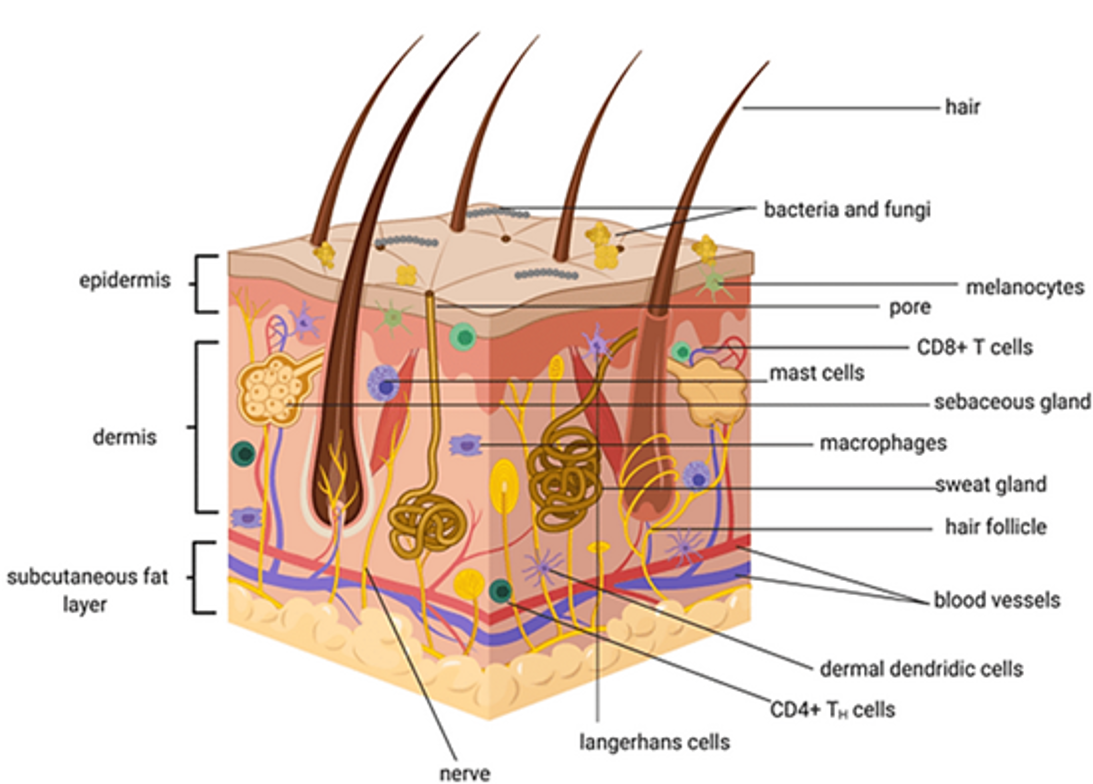New 3D human skin model
The skin is a complex organ, fulfilling multiple functions as a physical barrier, immune defence, insulator and heat sensor.
Although human skin substitutes are available, they generally lack important skin appendages such as hair follicles, vessels and sweat glands, and do not incorporate all the cell types naturally present in the skin.
In particular, the skin contains immune cells that play a crucial role in the response to aggression from infectious agents.
3D models incorporating these immune components would considerably improve their reliability and relevance.
Competitive advantages
- Power and energy
- Fast charging
- Low-cost
- Low environmental impact
Applications
- Micro-energy storage
- Light vehicles(bicycles, scooters, etc.)
- High-power wireless tools
- Stationary devices
Intellectual property
- Patent
Development stage
Experimental proof of concept
Laboratory

Description
The laboratory has developed a new skin substitute that reproduces the skin's complexity and organisation: it contains immune cells, vascular structures, melanin deposits (pigmentation) and sweat glands.

Technical specifications
After 20 days in culture:
- Spontaneous organisation of the dermis and epidermis with clear separation of the two layers and differentiation of the epidermis
- Alignment and organisation of endothelial cells into a vascular network
- Metabolically active cells (collagen production and organisation into mature fibres) and proliferating cells
- Presence of immune cells and sweat glands




